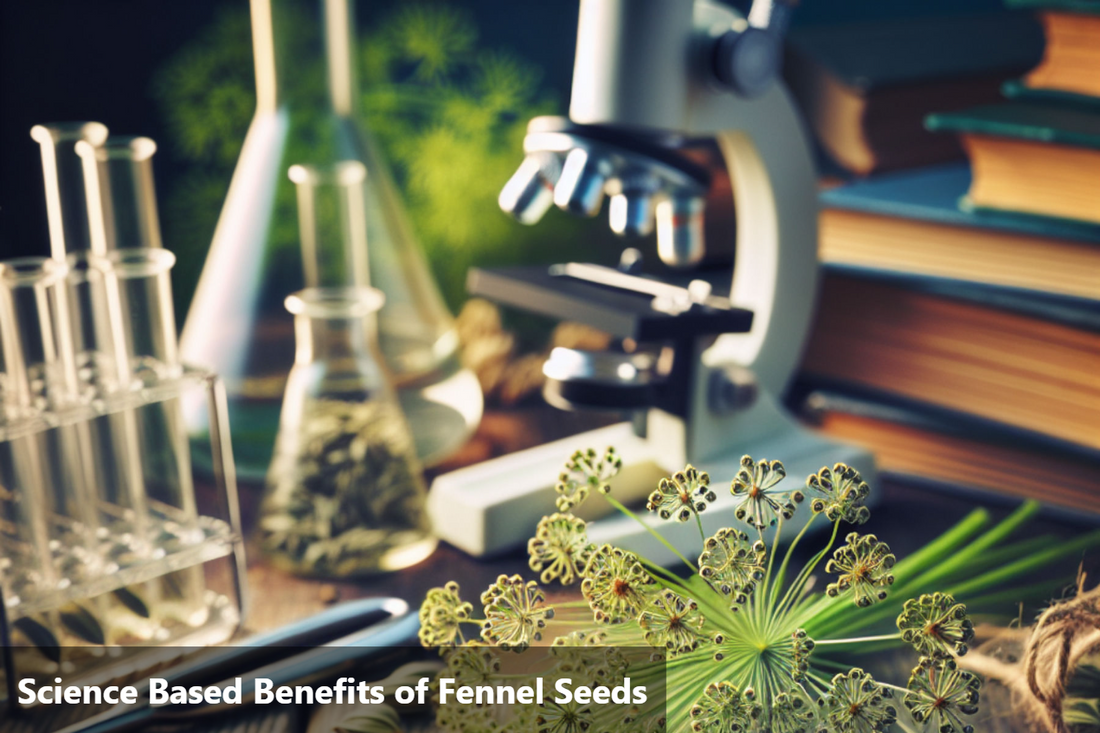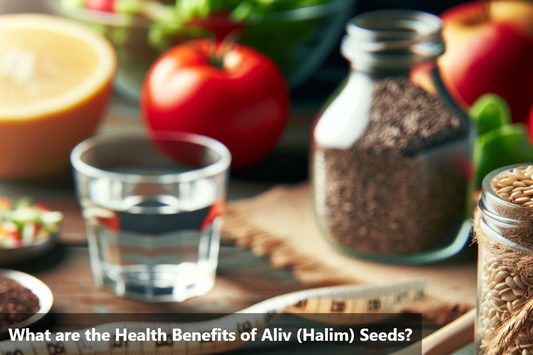Seeds
Fennel Seeds have been cherished for their unique flavor and medicinal properties for centuries. These small, ridged seeds come from the fennel plant, which is a part of the carrot family. Historically, fennel seeds have been used not only as a culinary spice but also as a natural remedy in traditional medicine practices.
The distinct sweet and slightly licorice-like taste of fennel seeds adds depth to various dishes, making them a popular choice in cuisines around the world. Beyond their culinary uses, fennel seeds are rich in nutrients like fiber, vitamins, and minerals, making them a valuable addition to a balanced diet.
Nutritional Profile of Fennel Seeds
Nutrition chart for Fennel Seeds per 100 grams:
Nutrient |
Amount |
|---|---|
Calories |
345 |
Protein |
15.8 g |
Fat |
14.9 g |
Carbohydrates |
52.3 g |
Fiber |
39.8 g |
Calcium |
1196 mg |
Iron |
18.5 mg |
Magnesium |
385 mg |
Phosphorus |
487 mg |
Potassium |
1694 mg |
Sodium |
88 mg |
Zinc |
3.7 mg |
Health Benefits of Fennel Seeds
Digestive Aid: Fennel seeds contain compounds that promote digestion by stimulating the production of digestive juices and enzymes, reducing bloating, gas, and indigestion.
Relieves Constipation: The fiber content in fennel seeds helps promote bowel movements, preventing constipation and supporting overall digestive health.
Anti-inflammatory Properties: Fennel seeds possess anti-inflammatory properties due to their high concentration of antioxidants, which may help reduce inflammation and alleviate symptoms of inflammatory conditions like arthritis.
Supports Heart Health: Fennel seeds contain potassium, which helps regulate blood pressure and supports heart function, reducing the risk of cardiovascular diseases.
Improves Respiratory Health: Fennel seeds have expectorant properties that help loosen and expel mucus from the respiratory tract, relieving symptoms of coughs, colds, and respiratory infections.
Antimicrobial Effects: Fennel seeds exhibit antimicrobial properties, inhibiting the growth of harmful bacteria and fungi, which may help prevent infections and promote oral health.
Supports Weight Loss: Fennel seeds can aid in weight loss by promoting feelings of fullness, reducing appetite, and boosting metabolism, making them a useful addition to a weight management plan.
Relieves Menstrual Symptoms: Fennel seeds contain compounds that help regulate menstrual cycles and alleviate symptoms like cramps, bloating, and mood swings associated with menstruation.
Supports Eye Health: Fennel seeds are rich in antioxidants like vitamin C and beta-carotene, which help protect the eyes from oxidative damage, reducing the risk of age-related macular degeneration and cataracts.
Improves Skin Health: The antioxidant and anti-inflammatory properties of fennel seeds help promote healthy skin by reducing inflammation, preventing acne breakouts, and delaying signs of aging.
How to Incorporate Fennel Seeds into Your Diet?
As a Spice: Toast whole fennel seeds in a dry skillet until fragrant, then grind them into a powder using a spice grinder or mortar and pestle. Use the ground fennel powder as a seasoning in soups, stews, curries, marinades, and salad dressings for added flavor.
Tea: Steep fennel seeds in hot water to make a soothing and aromatic tea. Simply add a teaspoon of fennel seeds to a cup of boiling water, let it steep for 5-10 minutes, then strain and enjoy. You can also combine fennel seeds with other herbs like peppermint or chamomile for a refreshing herbal blend.
Baked Goods: Add whole or ground fennel seeds to bread, muffin, or cookie recipes for a unique flavor twist. Fennel seeds pair well with citrus fruits, nuts, and spices like cinnamon and cardamom in baked goods.
Salads: Sprinkle toasted fennel seeds over salads or roasted vegetables to add a crunchy texture and subtle licorice-like flavor. You can also mix ground fennel seeds into salad dressings or vinaigrettes for an extra burst of flavor.
Yogurt or Smoothies: Mix ground fennel seeds into yogurt or smoothies for a nutritional boost and added flavor. Fennel seeds complement the sweetness of fruits like bananas, strawberries, and oranges in smoothies.
Fish and Seafood: Use whole or ground fennel seeds as a seasoning for fish and seafood dishes. Fennel seeds pair particularly well with salmon, shrimp, and white fish, adding depth of flavor and aroma to the dish.
Pickles and Preserves: Add whole fennel seeds to homemade pickles, chutneys, and jams for a hint of warmth and spice. Fennel seeds can enhance the flavor of preserved fruits and vegetables and balance out sweetness.
Grains and Legumes: Sprinkle toasted fennel seeds over cooked grains like rice, quinoa, or couscous, or add them to lentil or bean dishes for extra flavor and aroma.
An outlook of Fennel seeds
Fennel seeds have been revered for their numerous health benefits, making them a valuable addition to any diet. Rich in antioxidants, vitamins, and minerals, fennel seeds offer a range of advantages that can support overall well-being.
These tiny seeds are known for their ability to aid digestion and alleviate digestive issues such as bloating and indigestion. Additionally, fennel seeds exhibit anti-inflammatory properties that may help reduce inflammation in the body, promoting better health.
Moreover, fennel seeds are a versatile spice that can easily be incorporated into various dishes, from savory to sweet. Whether you sprinkle them over salads, add them to soups, or infuse them into tea, the options are endless for enjoying the benefits of fennel seeds.
This Blog post is an initiative by DiabeSmart, to provide accurate and Nutritionist / Doctor approved information related to Diabetes. DiabeSmart is India's first Food brand designed specifically for Diabetics, that has been clinically tested on Diabetics and Pre-Diabetics to deliver 55% - 70% lower Sugar spikes. DiabeSmart is part of Lo! Foods - India's leading brand for Everyday Functional Health foods.








